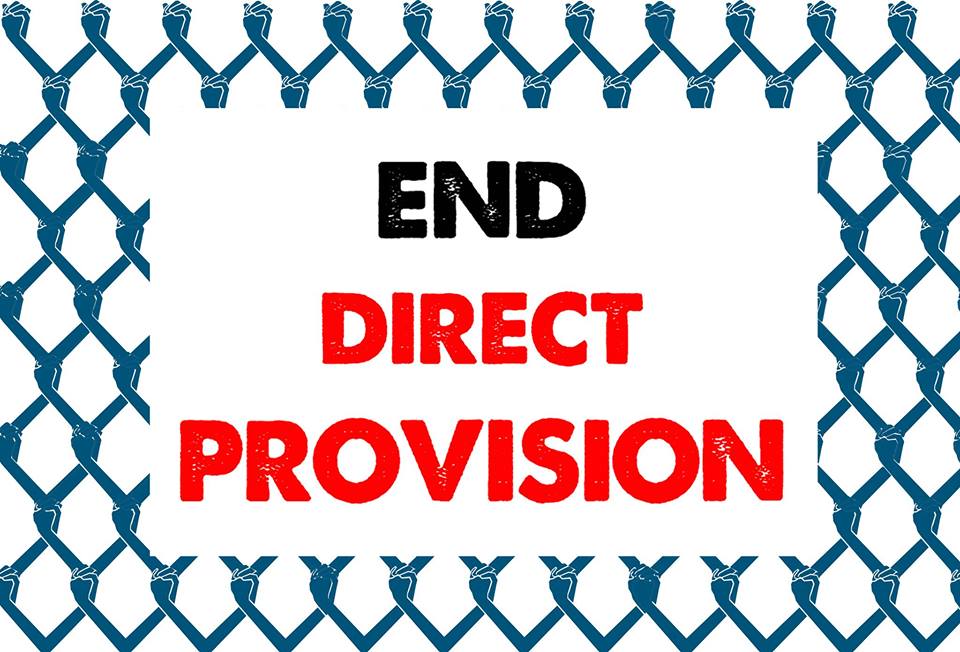This Thursday, March 9, saw a discussion entitled “Direct Provision- Why It Must End” being held in a spacious seminar room in Áras an Phiarsaigh. The event was a collaborative one between Trinity People Before Profit and TCDSU. The sole speaker of the afternoon was Memet Uludag, a founding member of United Against Racism, a membership-based, democratic organisation which rejects all forms of racism and calls for the abolition of the Direct Provision system in Ireland. He spoke with infectious passion and spirit to a room of about twenty students, taking advantage of the intimacy of the setting in order to successfully communicate his powerful message.
So what is direct provision? It can come across one of those “buzz phrases” that we hear often in College but aren’t fully sure of the meaning behind. In all honesty, before attending this event I knew it was in some way related to asylum seekers and how they are treated in Ireland, but had little grasp of its purpose or effects.
Direct provision is Ireland’s way of meeting its obligations with regards to the accommodation of asylum seekers. It was originally introduced in 1999 as a six-month “emergency measure” but has remained in place to this day. It is a system whereby migrants who enter this country are placed in special direct provision centres, such as caravan parks or apartments, and receive their food, utilities and accommodation paid for by the state. Each adult receives an additional €19.10 per week, with each child receiving €9.60 weekly.
You might think that that doesn’t sound too bad right? Everything paid for you, meals cooked and a bit of extra cash on the side, what’s there to complain about? Unfortunately however, this system has proven to be incredibly ineffective, being described as “inhuman and degrading” in a court case asserting that the system is illegal under both the Irish Constitution and the European Convention of Human Rights. Memet describes an apparent “non-existence” of the people placed in the centres. They are denied their basic human right to work and the right to social welfare and access to public housing and or/rent supplements. The average time spent in these centres is two years but some have been residing in them for eleven years, waiting to be granted asylum.
The shocking reality of the situation was emphasised by Memet’s earnest account of his first-hand experience working with asylum seekers in Ireland. He had worked as a volunteer as a teach in an adult education centre for torture victims between 1999 and 2007. He told a story of a young man who had stopped attending his classes as he was saving the €1.10 he received as a transport allowance to attend the class in order to save up to purchase a bus ticket to Longford to see his wife and children who were staying in another direct provision centre.
Memet also spoke of a woman who could not even shake hands with a man as her husband had been brutally murdered and she had been gang-raped for six weeks by a group of soldiers in her home country. So many of the asylum seekers who enter this country are carrying horrific stories like this on their backs upon arrival. Surely the least we can do is offer these people prompt asylum, without forcing them to live as “non-existents” for years first.
.
Before the event was concluded, Memet expressed his slight disillusionment to have never seen a Trinity College Student’s Union banner at any United Against Racism or Direct Provision Abolition events around Dublin. He expressed a need for us to not only increase focus on this pressing issue within the walls of the campus but also to take this issue onto the streets and the wider world. Following the enormous support for the Strike4Repeal and recent March For Education, it seems that there is no better time for us, as students, to draw our attention to and show our support for the basic human rights which have been denied to so many under the somewhat farcical direct provision scheme.







